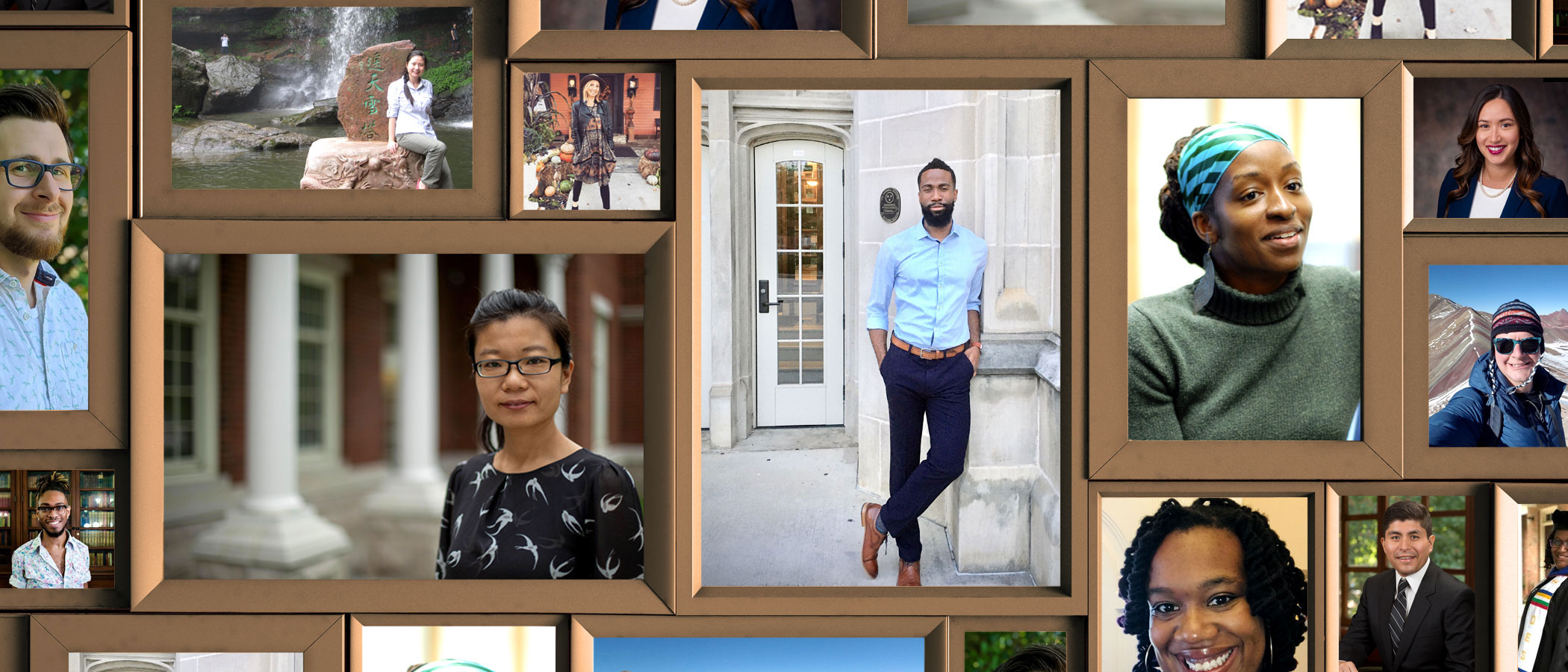
Equity, Inclusion and Diversity
Equity, inclusion and diversity. These are more than just three words expressing commitment.
They are integral to our experiences and actions within the College of Humanities and Sciences. Commitment to equity, diversity and inclusion promotes experiences and fuels behaviors that support a welcoming and affirming environment for students, staff and faculty. Whether diversity is based on perspectives, life experiences, cultural backgrounds, social identities and other unique expressions, it makes for a better place to work, to teach and learn, to conduct research and to engage with our local community.
Equity is also expressed in our commitment to and mutually respectful engagement with our local community that has historically faced social inequities in education, health, employment and housing.
We are especially committed to increasing equity for underrepresented minority groups and other protected identities that have historically experienced inequity and lack of representation in higher education.
2022-23 Report

This report summarizes the College of Humanities and Sciences equity, inclusion and diversity (EID) and community engagement activities for the 2022-23 academic year.
Equity, Inclusion and Diversity & Community Engagement Report, 2022-2023
IDEC

The College of Humanities and Sciences Inclusion, Diversity and Equity Committee (IDEC) highlights, coordinates, promotes and institutes efforts across all CHS units that foster respect, greater understanding, engagement and inclusion of all its members.
Visit the IDEC web page for more information.
Key Concepts
We invite you to join us in showing your commitment by practicing these values.
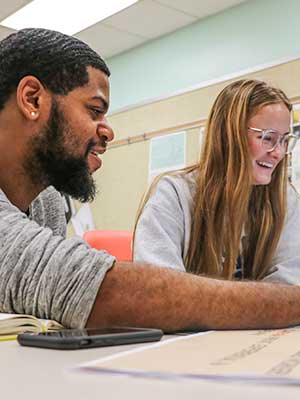
Equity
Equity is the process of ensuring that procedures and programs are impartial and provide equal possible outcomes for every individual. It ensures everyone has access to the same opportunities and recognizes we don't all start from the same place because some groups have more advantages and others face more barriers. Equity corrects for this imbalance.
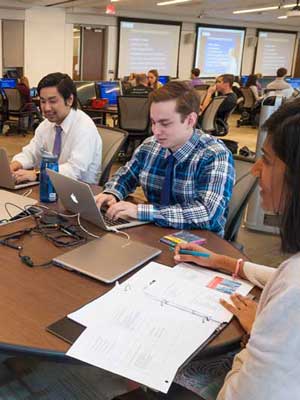
Inclusion
The concept and practices of inclusion are about providing equal access to opportunities and resources for people who might be otherwise excluded or marginalized. It involves treating all individuals with fairness and respect. Inclusion involves power-sharing and empowerment, which is honoring and respecting the voices, talents, beliefs, backgrounds and ways of living of everyone.
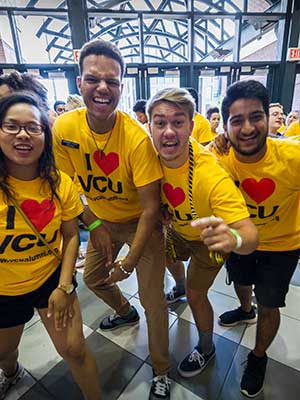
Diversity
Diversity refers to practices that involve understanding and appreciating the qualities and experiences of those who differ from us. Diversity recognizes that systematic discrimination creates and maintains privileges for some and disadvantages for others. It, therefore, has as its focus different people working together to eradicate discrimination and social injustice. Diversity includes but is not limited to culture, race/ethnicity, religion, age, gender, sexual orientation, disability status, immigrant status and socioeconomic class.
Other EID Concepts
- BIPOC
- Refers to Black, Indigenous and people of color
- Equity, Inclusion, Diversity and Justice (EIDJ)
- The inclusion of justice in EID
- Minoritized
- A term that means to be devalued in society and given less access to its resources. This devaluing encompasses how the group is represented, what degree of access to resources it is granted and how the unequal access is rationalized. Traditionally, a group in this position has been referred to as the minority group. However, this language has been replaced with the term minoritized to capture the active dynamics that create the lower status in society and also to signal that a group's status is not necessarily related to how many or few of them there are in the population at large (see the New Discourses Microaggressions page)
- Underrepresented Minority (URM)
- A U.S. citizen who identifies as Black/African American, Hispanic/Latino, or American Indian. All other Race/Ethnicity categories or Non-U.S. citizens are considered Non-Underrepresented Minorities (Non-URM).
Strategic Goals
We must be intentional about EID as seen through commitment and behaviors, including:
- how we teach and train students
- how students live and learn
- how faculty, staff and students interact with each other
To this end, the College has devised a list of short-term goals for equity, inclusion and diversity for July 2021 through December 2022. The CHS goals are in alignment with several of VCU's Quest 2025 themes and goals and include strategies and metrics.
Visit the EID Strategic Goals page for further information.
Resources
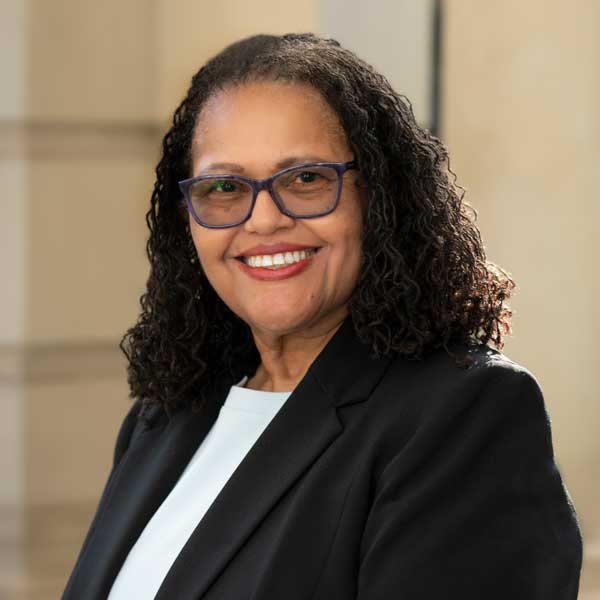
Check out Dr. Belgrave's curated list of resources from academic and popular media to help CHS faculty and staff incorporate equity, inclusion and diversity into their professions and workplaces.
- Call Me By My Name: VCU makes its commitment to inclusion real by recognizing that individuals have the right to use names other than their legal name, to identify with the gender they know themselves to be and to utilize the pronouns that best fit them
- College of Humanities and Sciences Inclusion, Diversity and Equity Committee: Highlights, coordinates, promotes and institutes efforts across all units within the College that foster respect, greater understanding, engagement and inclusion of all its members
- Guide to pronoun best practices
- Syllabus diversity and inclusion statement [Word]
- Tools and resources for inclusive learning: An equity, inclusion and diversity toolkit compiled by Judith Crenshaw in the Robertson School with practical tips for syllabi, assignments, classroom interactions and accessibility
- VCU Center for Learning and Teaching Success and Faculty Success: Workshops for faculty on inclusion, diversity, equity and social justice
- VCU Climate Report: A diversity and inclusion campus rating system that provides diversity, inclusion and engagement scores for each major unit on campus
- VCU Division for Inclusive Excellence: Leads the university’s efforts to strengthen our core mission and culture of inclusion and diversity
- VCU Iexcel Education: A course and program compendium that is invested in cultivating a university environment that is empowering, fair and supportive for all
- VCU Office of Multicultural Student Affairs: Promotes an appreciation of diversity through events, forums, scholarships and more
- VCU Office of Student Accessibility and Educational Opportunity: Provides accommodations to eligible students with disabilities
- VCU Office of the Ombudsperson: An independent dispute resolution practitioner for faculty, staff and students
- VCU policy on preventing and responding to discrimination
- VCU Safe Zone: Workshops to reduce homophobia, transphobia, biphobia and heterosexism at VCU
- Virginia Center for Inclusive Communities: A partnership which facilitates programming and workshops to achieve success through inclusion
Equity, Inclusion and Diversity Highlights
Feb. 26, 2025
Checking in with VCU’s Black history makers
For more than four decades, VCU has honored students with Black History in the Making Awards – and here are updates on six accomplished recipients.
Feb. 26, 2025
World@VCU: Mahmoud Kaid from Egypt
‘Watching both my boys grow here has added a whole new perspective to my work and life.’
Feb. 25, 2025
Black History in the Making Award alumni highlight: Catch up with 2017 Award Recipient, Jaz-Munn Johnson
For Black History Month, we’re shining a spotlight on Black History in the Making Award recipients.


